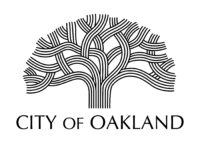Part One of this series took a look at how the regulated cannabis market can only be understood in relation to the previous medical market as well as the ongoing “traditional” market. Part Two of the series describes how regulation defines vertical integration in California cannabis.
If you are considering getting involved in California cannabis, imagine the following sentence in ten-foot-tall letters made out of recently ignited $20 bills:
Before you put any money down on property, carefully examine the local cannabis ordinance and tax rates.
This article is written in the form of advice to a newbie cannabis entrepreneur in California, but it will discuss issues that are also of significance to investors, as well as (to various degrees) cannabis entrepreneurs in other states.
Here are seven basic questions that you need to ask about local regulations (in order, except for Number 7).
1. What’s Your Jurisdiction?
If you’re in city limits, it’s the city. If you’re outside city limits, it’s the county.
2. Does the Jurisdiction Allow Cannabis Activities?
If the answer is yes, go to the next question. If the answer is no, pick another jurisdiction.
3. Where Does the Jurisdiction Allow Cannabis Activities?
A zoning ordinance will limit where you can set up shop. The limitation will probably vary by license type.
4. How Does the Local Ordinance Affect Facility Costs?
The short answer is: in many ways. Your local ordinance is a Pandora’s box of legal requirements, especially facility-related requirements.1 Read your local cannabis ordinance very carefully.
Generally speaking, the cannabis ordinance will set out two types of requirements – those that are specific to cannabis and those that apply generally to any business.

Photo by Wilhelm Gunkel on Unsplash
Cannabis-specific requirements:
- Typically incorporate state cannabis laws by reference.
- Have significant overlaps with state cannabis laws. For example, the state requires commercial-grade locks and security cameras everywhere cannabis may be found on a given premises. Local ordinances generally include similar requirements – keep in mind that you will need to comply with a combined standard that satisfies both state and local requirements.2
- Vary greatly according to type of activity. For example, manufacturers will need to comply with Health & Safety Code requirements that can have a major impact on construction costs.
- Vary greatly by jurisdiction when it comes to equity programs.
General requirements:
- Include by reference building and fire codes, which can require very expensive improvements. Note that this means your facility will be inspected by the building department and the fire department.
- Can include anything from Americans with Disabilities Act (ADA) requirements to city-specific requirements, such as Design Guidelines.
- Will be zealously enforced because you’re a cannabis business.
5. What is the Enforcement Policy?
It may be that your local jurisdiction will give you temporary local authorization after meeting some, but not all, of the requirements. For example, you may be able to begin operations once you’ve provided your city or county with your cannabis permit application, a zoning clearance and a business permit. In this jurisdiction, you would be able to bring your building up to code sometime after you begin operations.
 On the other hand, your local jurisdiction may require you to meet every requirement – from cannabis-specific security requirements to general building code and ADA requirements – before you can begin operations. Depending on the type of cannabis business (and facility condition), this might be inconsequential. Or it might mean that you will have to pay more than a year’s worth of rent (or mortgage) before you can start making money.
On the other hand, your local jurisdiction may require you to meet every requirement – from cannabis-specific security requirements to general building code and ADA requirements – before you can begin operations. Depending on the type of cannabis business (and facility condition), this might be inconsequential. Or it might mean that you will have to pay more than a year’s worth of rent (or mortgage) before you can start making money.
6. Can You Choose a Facility That Saves You Time and Money?
Of course, you won’t have to spend much time or money bringing your facility up to code if it’s already up to code. How likely it is that you will find such a facility varies wildly according to the type of cannabis activity in question. In general:
- Service-side activities (delivery retail, storefront retail, distribution) are in many respects similar to their non-cannabis counterparts. From a facilities standpoint, the major differences come from security requirements. So, it may be possible to save time and money by choosing a facility that is already up to code for a similar use.
- Manufacturing activities are trickier, since you will need food-grade facilities and equipment. You may be able to save money by setting up shop in a commercial kitchen.
- Extraction with volatile solvents is a special (and particularly expensive) case, since it is inherently dangerous and requires special facilities.
- Outdoor cultivation may be relatively unproblematic if it has an appropriate water source.
- Indoor cultivation is expensive because of climate-control and lighting requirements. Buildings potentially suitable for large-scale indoor grows frequently come with significant problems. Former warehouses will typically require major power upgrades, while former factories may have inconvenient architecture and/or hidden toxic waste. In all cases, internal reconstruction is likely to be necessary, and will trigger all sorts of building and fire code requirements.
7. What Are the Local Cannabis Taxes?
 Cannabis tax rates may be determinative. For example, Oakland imposes a 6.5% gross receipts tax on manufacturers that have gross receipts of less than $5M, and 9.5% on manufacturers that have gross receipts over $5M. In comparison, Santa Rosa only imposes a 1% gross receipts tax on manufacturers.
Cannabis tax rates may be determinative. For example, Oakland imposes a 6.5% gross receipts tax on manufacturers that have gross receipts of less than $5M, and 9.5% on manufacturers that have gross receipts over $5M. In comparison, Santa Rosa only imposes a 1% gross receipts tax on manufacturers.
Local cannabis ordinances and taxes can make or break your business, so you need to understand them before you commit to a location. The seven basic questions listed above are designed to get you started.
This article is the opinion of the author and is not intended to be legal or other advice.
References
- For example, see Part II of the City of Oakland’s Administrative Regulations and Performance Standards, and The City of Los Angeles’s Rules and Regulations for Cannabis Procedures No. 3 (A)(14).
- For example, compare 16 CCR § 5044 (“Video Surveillance System”) with The City of Los Angeles’s Rules and Regulations for Cannabis Procedures No. 10 (A)(7).















